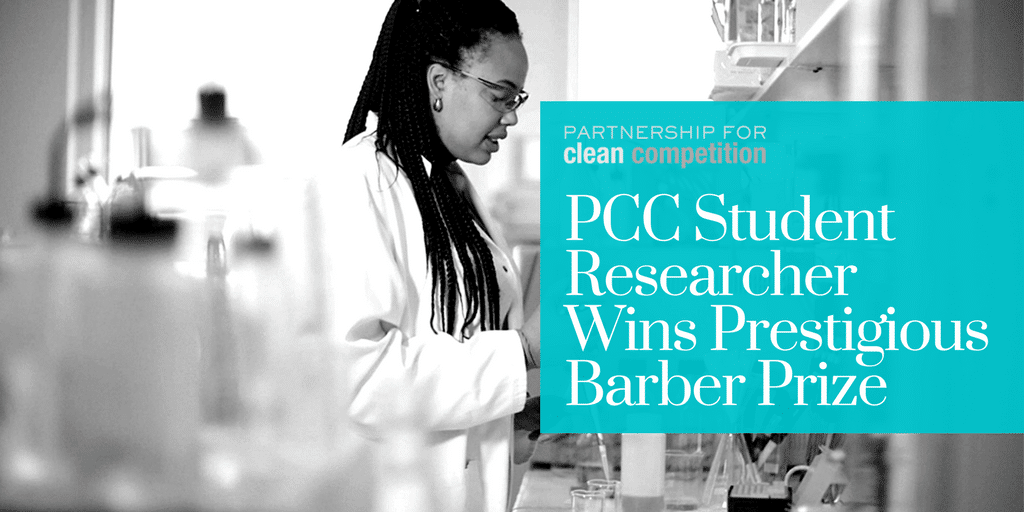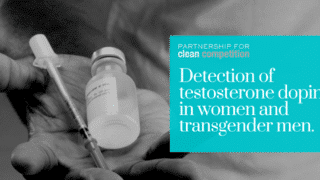This interview was also featured in the PCC’s 2017 Fall Newsletter.
The PCC was excited to catch up with Danielle Moncrieffe after she was presented the Barber Prize by the British Mass Spectrometry Society at their annual meeting. The BMSS awards the Barber Prize to the best young person’s oral presentation in honour of Mickey Barber who was known for his strong dis-like in giving oral presentations. Danielle was awarded the prize after presenting her findings on a PCC funded research study designed to explore the Growth Hormone biomarker P-III-NP.
Ms. Moncrieffe is working alongside renowned anti-doping expert (and Laboratory Director) Dr. David Cowan to publish the results of this successful research in the coming weeks. In the meantime, we wanted to find out what led Ms. Moncrieffe to pursue a career in anti-doping – and what keeps her excited about the field.
What path led you to working in an anti-doping lab?
As part of my MSc. Forensic Science course I was very fortunate to be selected to undertake a three month research project at the highly prestigious Drug Control Centre (DCC) at King’s College London, one of only 32 WADA accredited anti-doping laboratories worldwide.
Here, I was awakened to the high standards and use of analytical science in anti-doping control. This led me to develop a deep passion for the research in this field. On completion of my Master’s project, I was offered the position of routine analyst within the DCC and I am now pursuing a PhD within this field.
What do you like best about working in the anti-doping sphere?
The science is never static, hence it constantly requires new approaches and research which allows you to continually increase and expand your knowledge. For example, I started using LC-MS (liquid chromatography-mass spectrometry) for small molecules and now resulting from my PHD research, I focus on the analysis of proteins by MS.
What’s next for you?
On completion of my PhD, I am hoping to be able to take on a post doctoral position to continue developing as a protein mass spectrometrist.
Who would you recommend pursue a career in anti-doping?
Anti-doping is an application of science, however it also requires scientists to adhere to very strict and high standards. To any bioanalytical scientist wanting to work in a compelling environment where their knowledge base will constantly be expanding, this may be a good field for you.
To see more about what Danielle does on a daily basis to support the anti-doping movement, see this excellent video produced by King’s College London and BBC:
We are proud to see such an accomplished young scientist contributing to the anti-doping movement. Congratulations, Danielle!




